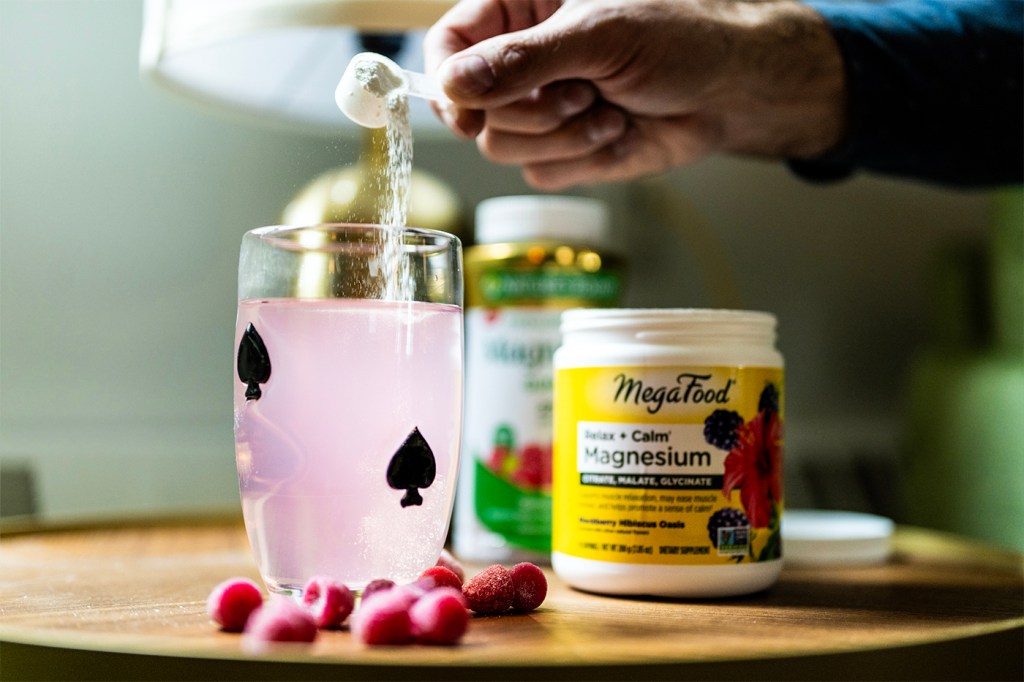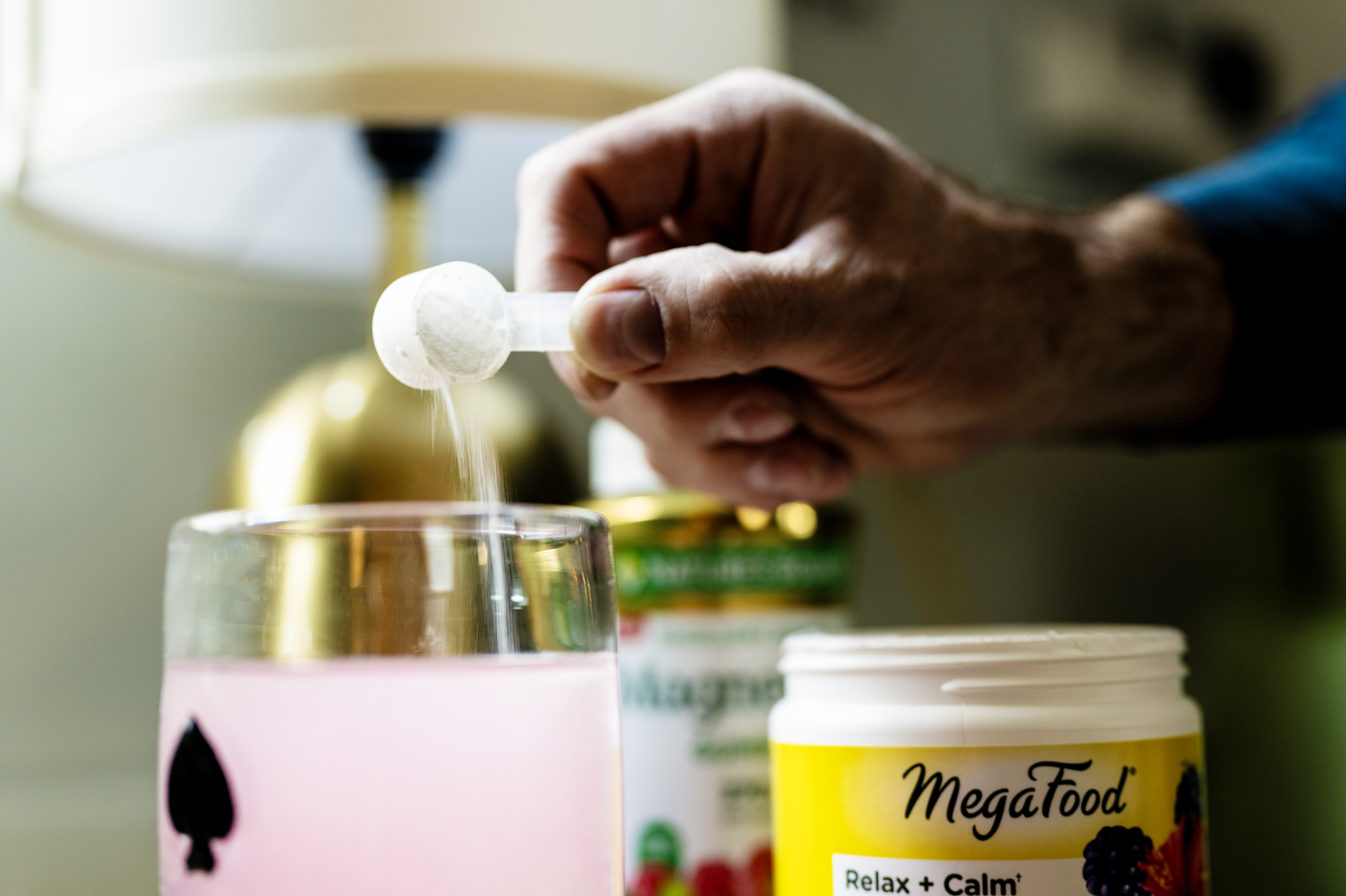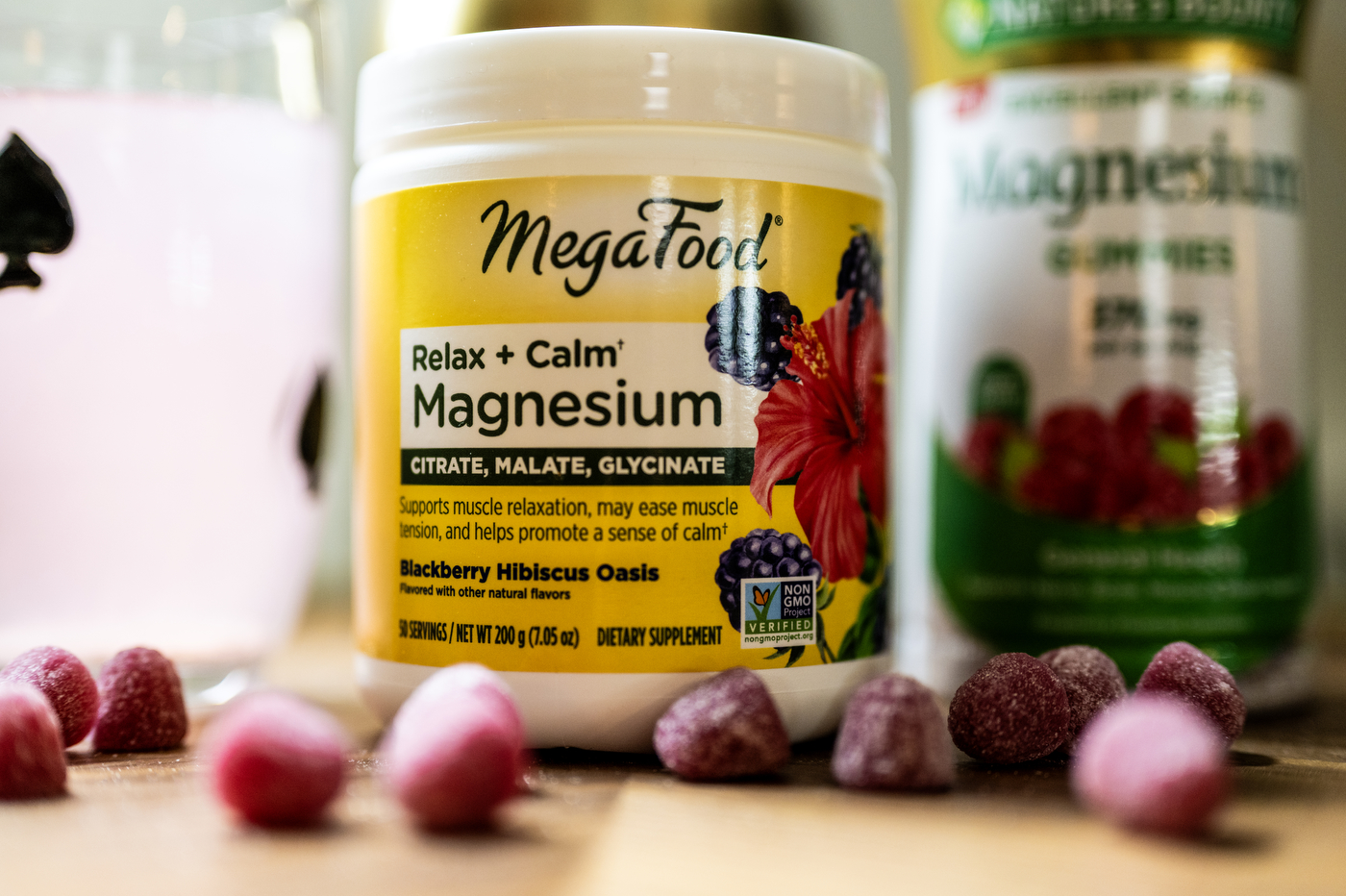Does magnesium help with sleep? Expert says probably not

It’s the latest entry in the self-care, sleep-aid craze, taking over your TikTok feed and infusing a mocktail that has drawn the attention of the New York Times.
But is magnesium really the solution to your insomnia? Northeastern University experts say it’s inconclusive … and it depends.
“Although it’s very popular, and it’s in the news a lot — it’s unlikely to cause harm, but it’s also just as likely that it may or may not be effective for sleep,” says Carla Bouwmeester, clinical professor of pharmacy and health systems science at Northeastern University. “A lot of the research, a lot of the clinical studies, have had very mixed results in terms of how well magnesium can help with sleep.”
Kathleen Mackenzie, a senior lecturer in behavioral science at Northeastern who focuses on sleep and adolescent development, meanwhile, says that magnesium can be effective for the approximately half of Americans who are deficient in the mineral. In fact, Mackenzie says she takes magnesium to prevent intense leg cramps that can wake her in the middle of the night.
Featured Posts
That being said …
“I would say, in general, I am not a big fan of medications or supplementations as a long-term plan,” Mackenzie says. “I do think medications and/or supplements can help people get on the right track in the short term. But what I think is the more important issue is to change the lifestyle and behaviors that have contributed to the problem of sleep disorders or insomnia.”
Magnesium is an essential mineral that is used in more than 300 cellular processes, but Bouwmeester says it is most well known for its use in bone metabolism — or the building and repair of bone. In fact, most of the magnesium in the body is stored in bone and acts as a reserve to help maintain a small concentration of magnesium in the bloodstream, Bouwmeester explains.
Health influencers
But magnesium has been adopted by popular health influencers on TikTok, and the Sleepy Girl Mocktail — a spoonful of magnesium mixed into seltzer and tryptophan-heavy tart cherry juice — has now become a part of bedtime routines across the country.
In many ways, it makes sense.
Bouwmeester notes that magnesium does affect the levels of certain chemicals in the brain, including melatonin, a hormone that helps regulate your circadian rhythm and sleep.
“Magnesium is kind of linked to melatonin in that it can increase melatonin levels,” Bouwmeester says. “So, that may be one way that magnesium is potentially helpful for sleep.”
But Bouwmeester cautions that “we don’t know exactly how that works.”
“It may have some effects on some other neurotransmitters or chemicals in the brain that cause more sedation as well,” Bouwmeester continues. “But again, it’s not directly working, but has effects kind of like a cascading effect.”
And, well, there are a lot of buts.


Potential benefits
Most of the studies that showed potential benefits of magnesium for sleep or insomnia involved older adults and had a smaller sample size.
“With a smaller sample size, there’s more potential for confounding factors or other things that are happening,” Bouwmeester says.
Bouwmeester says it’s also important to remember that many of the studies on magnesium also involved moderate to high doses of the mineral, typically given multiple times over a long period of time … because magnesium can have a side effect that can be pretty problematic if you’re trying to fall asleep — diarrhea.
“Magnesium is not something like ‘ohh, I’m having trouble falling asleep tonight, I can just take my dose of magnesium, and I’m gonna fall asleep,’” Bouwmeester says. “It doesn’t work like that.”
And given the different types of magnesium supplements available and their varying ability to be effectively absorbed by the body, your dosage may be very different from the dosage that has been found in some studies to be helpful.
Sleepy Girl Mocktail
Which gets us to the Sleepy Girl Mocktail.
Interestingly, that might be effective … but perhaps not for the reason you think.
Both Bouwmeester and Mackenzie stressed the importance of good sleep hygiene, in particular, the importance of routine.
“Good sleep hygiene is having a bedtime routine, a bedtime,” Mackenzie says. “My number one recommendation for any health problem that anybody has is to get up and go to bed at the same time every day.”
And when trying to fall asleep, one thing that this routine should do is help you relax … whether drinking a magnesium mocktail or not.
“If you’re in a routine of doing something that is relaxing and that you feel is beneficial for your health, then it may be effective,” Bouwmeester says.










